Today also sees the publication of the periodical of the Personal Ordinariate of the Chair of St. Peter. Just click on the heading below:

Ordinariate Support Group in Europe Cycle of Prayer

-
Recent Posts
Recent Comments
Brother Bernardine on Father Stephen Hill – Ho… Jeff Hirst on New group joins the Adelaide O… Ratna Vajra on Anthony Delarue on Vestur… . BILL H on New group joins the Adelaide O… Michael Raymond Astl… on New group joins the Adelaide O… Fr. Carlos Marchesan… on St Gilbert Ordinariate Communi… EPMS on Monsignor Barnes – Attac… EPMS on St. Timothy’s, Fort Wort… Rev22:17 on New group joins the Adelaide O… godfrey1099 on Monsignor Barnes – Welco… 
Links
Blogs of Interest
Archives
Site Admin
- Ordinariate News (from the Anglicanorum Coetibus Society) claims no rights to the photographs, videos and texts by third parties which are posted on this blog. If for any reason any object is called into question, or if the particular owner has an objection to its being displayed, please contact us and it will be removed.
Blog Stats
- 691,335 hits
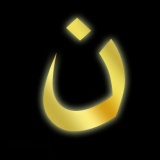
Solidarity with persecuted Arab Christians

Father Jacques Hamel RIP, martyred on July 26th, 2016



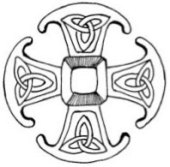
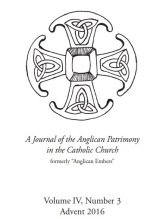

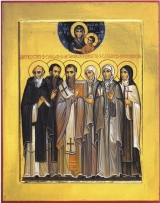
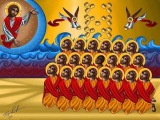
Glad to get a report on new Chancery staffing. Perhaps this will be updated on the website at some point. Disappointed that there was no report on the erection of Deaneries; we know that Fr Mark Lewis has been appointed VF of the Eastern Deanery, but an Eastern Deanery implies a Western Deanery, and no details of this have been forthcoming. And the existence or otherwise of a distinctive Ordianariate community in Flushing, NY remains unknown. Fr Treco’s ordination was covered so extensively elsewhere that its absence here is not so noteworthy. The appointment of a paid staff person to assist Msgr Gipson with Ordinariate fundraising and the implementation of standard accounting software in all OCSP parishes shows an encouraging commitment to professional stndards in these areas, as does the new screening program being implemented by Fr Wolfe. If only communication was given similar priority.
PS “Four Confirmed at St Thomas More Ottawa”. As we read here a few weeks ago https://ordinariateexpats.wordpress.com/2015/05/26/receptions-and-confirmations-at-pentecost/ this took place at St Thomas More,Toronto. Another apparently less newsworthy group was received at Annunciation of the BVM,Ottawa.
EPMS,
You wrote: Glad to get a report on new Chancery staffing.
Unfortunately, much of this reflects the proverbial tip of the iceberg of minutiae with which the staff of a new jurisdiction must involve itself. Such minutiae undoubtedly explains, in large part, why the reception of communities and the ordination of clergy has progressed at a snail’s pace.
You wrote: Disappointed that there was no report on the erection of Deaneries…
My guess is that the plan for deaneries is still under development, and that some parts of it are decided and that other parts are not. In the Catholic Church, announcements usually come only after the paperwork is signed. Until the, everything is under wraps. The fact that the ordinary mentioned an “eastern deanery” rather than using a name is also an indication that plans are still under development.
You continued: … we know that Fr Mark Lewis has been appointed VF of the Eastern Deanery…
You have the wrong tense here. If the deanery is not yet erected, there is no appointment as yet. IIRC, the gist of the ordinary’s comment was that he had chosen Fr. Mark Lewis to be the dean of an eastern deanery when he establishes it, but there apparently is no deanery — and thus no appointment of a dean — as yet.
You continued: … but an Eastern Deanery implies a Western Deanery, and no details of this have been forthcoming.
It might suggest a Western deanery, or at least another deanery by some other name, but it does not imply it.
There are at least a couple ways that the Personal Ordinariate of the Chair of St. Peter could organize deaneries.
>> One approach would be simply to divide the entire United States into geographical regions and to establish a deanery in each region, so that each community of the ordinariate would belong to one deanery or another. In this approach, the deaneries function as regional administrative units.
>> Another approach would be to organize deaneries where there are several communities that are within a few hours (driving), but not where the communities are further apart. In this approach, the deaneries would coordinate joint programming for the proximate communities but probably would not have a significant administrative function.
I suspect that the Deanery of St. John the Baptist will differ in some aspects from those erected here in the States because of its international character.
You wrote: Fr Treco’s ordination was covered so extensively elsewhere that its absence here is not so noteworthy.
I don’t agree. News that the ordinariate is receiving new members, erecting new communities, and ordaining new clergy would be a source of considerable encouragement to those who already are part of it. An official publication should be reporting this news.
Norm.
The caption here does not support Norm’s interpretation of the situation regarding the Eastern Deanery. In any event, CEOs do not normally announce publically that “Joe Blow here is going to be the manager of our Main St location when we get around to opening one.” https://www.facebook.com/StLukesOrdinariate/photos/pb.282655628462394.-2207520000.1434230243./857409267653691/?type=1&theater
One of the “success stories” which, IMHO, seldom get the publicity they deserve, is St. John Vianney (Cleburne). Wonderful to learn that their impressive growth continues with 6 more people confirmed. Their composition is also worth noting: one cradle Catholic, two former Baptists, and three former Episcopalians.
However, the St John Vianney confirmations raise questions of their own. Since they were done by the diocesan, that makes me wonder if the cradle Catholic and two Baptists were confirmed as Catholics but not members of the Ordinariate, since Baptists and Catholics who have completed the sacraments of initiation aren’t eligible. Naturally it’s good to hear news of the Ordinariate, but news that’s ambiguous isn’t so good, it seems to me. This is good news that people became Catholic, but they can do that outside the Ordinariate, and the vast, vast majority do.
John,
All those, including baptised Catholics, who have not completed the the sacraments of initiation and do so through the evangelistic outreach of the Ordinariate, are eligible for membership of the Ordinariate. This extension and clarification of Anglicanorum Coetibus was issued by Pope Francis in 2013.
Msgr Entwhistle, thank you for the clarification. I am taking my opinion, possibly misguided, from numerous statements on the US Ordinariate web site. For example, in the Q&A section, it says, “[T]he Ordinariate was formed in response to repeated and persistent inquiries from Anglican groups who were seeking to become Catholic, and is intended for those coming from an Anglican tradition.” I’m not aware of the precise wording of the clarification; if someone can provide this, I’ll appreciate it. However, it seems to me that at basis, must there not be limits on what the Ordinariate can do, since the Church seems to want to place strict limits on married priests, and if a married Ordinariate priest can simply start a universal parish outside diocesan authority, must that not defeat the intent?
Mr Bruce, as Msgr Entwistle has explained, you are wrong about the eligibility issue. Any non-Anglicans (including cradle Catholics) who receive the sacraments of initiation, particularly confirmation, in the Ordinariate may become its members.
http://www.usordinariate.org/news/amendment-to-apostolic-constitution-complementary-norms-emphasizes-mission-to-evangelize
Godfrey, here’s the wording of the amendment as presented on your link: “5§2: A person who has been baptized in the Catholic Church but who has not completed the Sacraments of Initiation, and subsequently returns to the faith and practice of the Church as a result of the evangelizing mission of the Ordinariate, may be admitted to membership in the Ordinariate and receive the Sacrament of Confirmation or the Sacrament of the Eucharist or both.”
I was aware of this — but as written, it clearly refers to persons baptized as Catholics WHO LEAVE AND subsequently RETURN AS A RESULT of the Ordinariate. This extension makes no mention of non-Anglicans not baptized as Catholics. My remarks above, insofar as I understand the extension on your link, question how far those “cradle Catholics” had gone, since it wasn’t (and still isn’t) clear. But I still also question the eligibility of the Baptists to become Ordinariate member. They are certainly Catholics, but that wasn’t my point.
There may certainly be another modification of the AC that you and Msgr Entwhistle may be aware of, and I respectfully defer if either of you can point it out — but this one doesn’t answer my concern.
John,
You wrote: Godfrey, here’s the wording of the amendment as presented on your link: “5§2: A person who has been baptized in the Catholic Church but who has not completed the Sacraments of Initiation, and subsequently returns to the faith and practice of the Church as a result of the evangelizing mission of the Ordinariate, may be admitted to membership in the Ordinariate and receive the Sacrament of Confirmation or the Sacrament of the Eucharist or both.”
I was aware of this — but as written, it clearly refers to persons baptized as Catholics WHO LEAVE AND subsequently RETURN AS A RESULT of the Ordinariate. This extension makes no mention of non-Anglicans not baptized as Catholics. My remarks above, insofar as I understand the extension on your link, question how far those “cradle Catholics” had gone, since it wasn’t (and still isn’t) clear. But I still also question the eligibility of the Baptists to become Ordinariate member. They are certainly Catholics, but that wasn’t my point.
There may certainly be another modification of the AC that you and Msgr Entwhistle may be aware of, and I respectfully defer if either of you can point it out — but this one doesn’t answer my concern.
You seem to be missing the very fundamental point that permissive laws are always construed broadly in Catholic ecclesial law. Thus, the provision that
in Article I the apostolic constitution Anglicanorum coetibus itself intrinsically extends to all who receive any of the sacraments of initiation (that is, baptism, confirmation, OR first eucharist) “within the jurisdiction of the Ordinariate.”
The so-called “Complementary Norms” cannot in any way modify or derogate from the law itself. Rather, they simply clarify interpretation and establish procedures for its implementation. Thus, the insertion of the paragraph quoted by “godfrey1099” does not, and never did, constitute a change in the law. Rather, this insertion simply affirmed that it is sufficient for a candidate to receive any of the sacraments of initiation “within the jurisdiction of the Ordinariate” to be eligible for membership therein, even if the candidate was baptized in the Catholic Church.
Note that the Rite of Reception of a Baptized Christian into the Full Communion of the Catholic Church includes both (1) confirmation, if the candidate was not validly confirmed, and in any case, (2) the candidate’s first communion in the Catholic Church, completing the sacraments of initiation. Thus, any person received into the full communion of the Catholic Church “within the jurisdiction of the Ordinariate” automatically qualifies for membership therein, regardless of the denomination from which he or she comes or within which he or she might have been baptized.
Norm.
I note that the persons recently confirmed at St Thomas More, Toronto received that sacrament at the hands of the diocesan archbishop, Cardinal Collins, who was visiting the parish for the first time. Perhaps the idea, as Norm suggests, is to demonstrate diocesan support for the Ordinariate venture. And of course in the Anglican tradition only a bishop can administer confirmation. Someone from that background would no doubt appreciate having someone in a mitre.
EPMS,
You wrote: And of course in the Anglican tradition only a bishop can administer confirmation. Someone from that background would no doubt appreciate having someone in a mitre.
That could be a consideration.
The Roman tradition historically has regarded the administration of confirmation as an act of governance as well as a sacrament, recognizing the recipient as an adult member of the community with full rights and privileges thereof. For this reason, the Codex Juris Canonici reserves the administration of confirmation to the diocesan bishop — but permits him to delegate this function to others (normally to an auxiliary bishop or a retired bishop, but it can be to a presbyter in case of necessity). The Byzantine tradition, however, regards confirmation (or chrismation) as part of baptism, so the normative practice in the Byzantine tradition is for a presbyter who baptizes to confirm at the same time. The Anglican tradition merely adopted what was the prevailing Roman practice at the time of the schism — a practice that did not change in the Catholic Church until Pope Paul VI promulgated the revised Rite of Christian Initiation of Adults (formerly called the Rite of Baptism — Long Form) and the new Rite of Reception of Baptized Christians into the Full Communion of the Catholic Church in the early 1970’s, thus implementing the reforms directed by the Second Vatican Council.
Norm.
OK, but this still doesn’t answer the question of whether the Baptists who were confirmed Catholic also became members of the Ordinariate. And §4 refers only to the Anglican Communion — generally, “continuing Anglican” denominations are not members of the Communion, but former continuers are usually regarded as eligible for membership in the Ordinariate. So I’m still particularly interested in how a member of the Ordinariate is to be defined. All Catholics may receive communion in an Ordinariate parish, so those former Baptists are welcome — but how are they to be regarded as “members” — or is this essentially a meaningless distinction?
John,
You wrote: OK, but this still doesn’t answer the question of whether the Baptists who were confirmed Catholic also became members of the Ordinariate.
Yes, I did. Please re-read the last paragraph of my previous reply, noting that the term “any person” encompasses those who come to the Catholic Church from a Baptist body.
Basically, any person baptized in another denomination and received into the full communion of the Catholic Church “within the jurisdiction of the Ordinariate” is eligible for membership in the Ordinariate.
You wrote: And §4 refers only to the Anglican Communion — generally, “continuing Anglican” denominations are not members of the Communion, but former continuers are usually regarded as eligible for membership in the Ordinariate.
Most “continuing Anglican” believers were previously members of the Anglican Communion. But even if they were not, reception into the full communion of the Catholic Church “within the jurisdiction of the Ordinariate” would make them eligible for membership.
But actually, at least one official site says that those who come from the Methodist tradition are also eligible for membership because the Methodist tradition is an offshoot of the Anglican Communion.
You wrote: So I’m still particularly interested in how a member of the Ordinariate is to be defined.
The apostolic constitution Anglicanorum coetibus requires that those eligible who wish to join or leave an ordinariate indicate their election in writing. When the ordinariate receives the written election, it notifies the bishop of the diocese within which the individual lives. The written election is what establishes official membership in the ordinariate.
You asked: All Catholics may receive communion in an Ordinariate parish, so those former Baptists are welcome — but how are they to be regarded as “members” — or is this essentially a meaningless distinction?
No, the distinction is not completely meaningless, but it is largely juridical. Matters that normally would go to the diocesan bishop, such as canonical censures, would go to the ordinary instead if the subject is a member of the ordinariate. Regulation of the liturgy and the sacraments in a parish or other community of the ordinariate rests with the ordinary rather than the diocesan bishop in the case of an ordinariate community. Also, ordination of a member of an ordinariate requires the permission of the ordinary rather than the diocesan bishop. (Note that celibate ordinaries will receive episcopal ordination, and thus will be able to ordain members of the ordinariate personally.)
Norm.
However, Norm, all your explanations do not answer the question which Mr. Bruce asked right at the beginning. Can former Baptists received and confirmed by the diocesan Bishop be considered as having received the sacraments of Initiation within the jurisdiction of the Ordinariate and are they thus eligible for Membership of the Ordinariate?
David, If you read reports from various Ordinariate communities, this was the practice on numerous occasions before, e.g. quite recently in Philadephia. Msgr Steenson is often, but not always, present when new members are confirmed, and it does not change a bit.
The fact that a priest is ordained by a diocesan bishop does not make him a diocesan priest; similarly, the fact that a layman is confirmed by a diocesan bishop does not make him a diocesan Catholic.
… presuming that the Bishop has been delegated by the Ordinary. But it is also true that all Ordinariate priests have been granted faculties to confirm for precisely such situations. It is therefore not necessary for a diocesan bishop to be involved at all and can only lead to confusion (I personally am still confused about the exact nature of Ordinariate/diocesan relations in Flushing, NY).
David,
You asked: However, Norm, all your explanations do not answer the question which Mr. Bruce asked right at the beginning. Can former Baptists received and confirmed by the diocesan Bishop be considered as having received the sacraments of Initiation within the jurisdiction of the Ordinariate and are they thus eligible for Membership of the Ordinariate?
Again, in Catholic ecclesial law is that permissive laws are always construed broadly. The fact that a reception must occur “within the jurisdiction of the ordinariate” is permissive, and thus construed broadly. Thus, the fact that the receptions occurred within a community of an ordinariate is construed to place them within its jurisdiction, even if the minister of the reception is not personally a member thereof. The documentation of the reception in the records of the receiving community, or in the central office of the ordinariate if the local community does not keep official records, is sufficient to establish this.
You subsequently wrote: But it is also true that all Ordinariate priests have been granted faculties to confirm for precisely such situations.
Splitting hairs, the Rite of Reception of Baptized Christians into the Full Communion of the Catholic Church actually requires a presbyter who receives a baptized Christian into the full communion of the Catholic Church to confirm that individual during the reception. Thus, this authority is intrinsic in the law itself. It does not require a delegation of power by the bishop or other ordinary.
You continued: It is therefore not necessary for a diocesan bishop to be involved at all…
That’s true — and I’m completely miffed as to why the pastor of the group bothered to invite the diocesan bishop to receive and confirm the former Baptists, unless he thought that the invitation and the bishop’s visit might promote relations with the local diocese in some way.
You said, parenthetically: … (I personally am still confused about the exact nature of Ordinariate/diocesan relations in Flushing, NY).
There are a lot of details about a lot of communities that seem not to be in the realm of public information. I have not heard anything about the progress toward reception of the Church of the Torres Strait and its members and reception and ordination of its clergy, either — and that reception, or series of receptions, will more than double the size of the Personal Ordinariate of Our Lady of the Southern Cross.
Norm.
The Torres Strait negotiations are not yet in the public domain, Norm, and we must therefore be patient and pray. The situation of groups already received is, however, different and I share your frustration at the lack of news.
The “exact nature” of Ordinariate/diocesan relations in Flushing, it seems to me, is one of the puzzling issues that’s fallen out of AC as implemented. This is a group of Spanish-speaking former Episcopalians who don’t use the Ordinariate liturgy at all and who worship at the Spanish mass at a diocesan parish. (I have no ides how their donations are credited, and cash in the basket is another theoretical issue!) Add to that the priest who brought them in was a Lutheran who led them as Episcopalians because TEC is in communion with ELCA. So what makes them Anglican in the context of AC is purely juridical I think if I joined an Ordinariate parish, frankly, I’d want something like a special hat. At least as good as the hat the KofC get.
Actuallly, although Fr Gonzalez y Perez was peripherally involved in the preparation of this group, according to accounts last August, he was not the one who initiated the move to the Catholic church and it is not clear that he contined to have any involvement with the group. He was not mentioned in the account of the group’s reception. It is true that Fr Gonzalez y Perez’s Anglican credentials are a little lightweight, as he was an ELCA clergyman associated only briefly with an Episcopal parish before seeking ordination in the OCSP. But, as we discussed at some length, Frs Treco and Sly were never involved with any Anglican parish. Is that important?
On the subject of updates on the OCSP website, I note that the heading “Communities” has been replaced with “Find a Parish” which is certainly clearer and more directive. However, it will be no easier for anyone who clicks on that link to actually find a parish, since it leads to the same collection of out-of-date information regarding locations, mass times, and websites.
You can now subscibe to the Ordinariate Observer by filling out a form on the OCSP website. Should a new issue finally appear, you will be among the first to know.